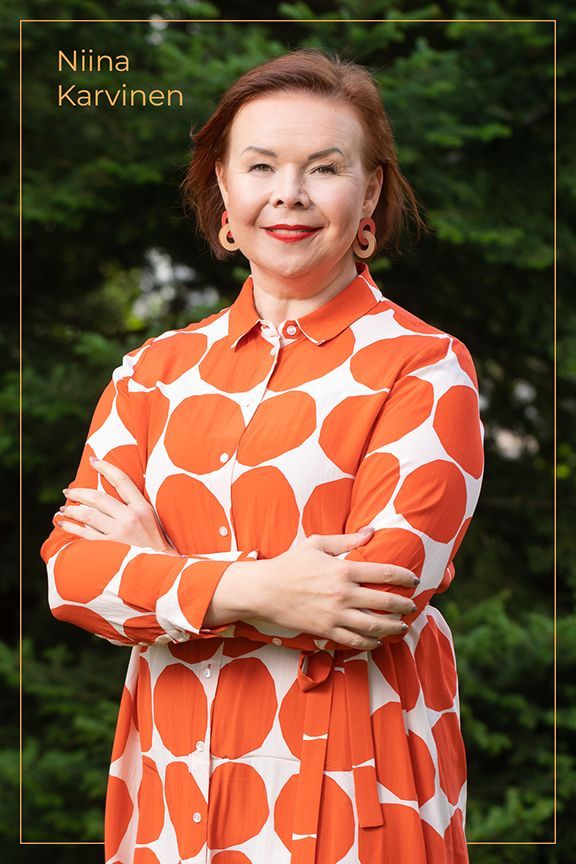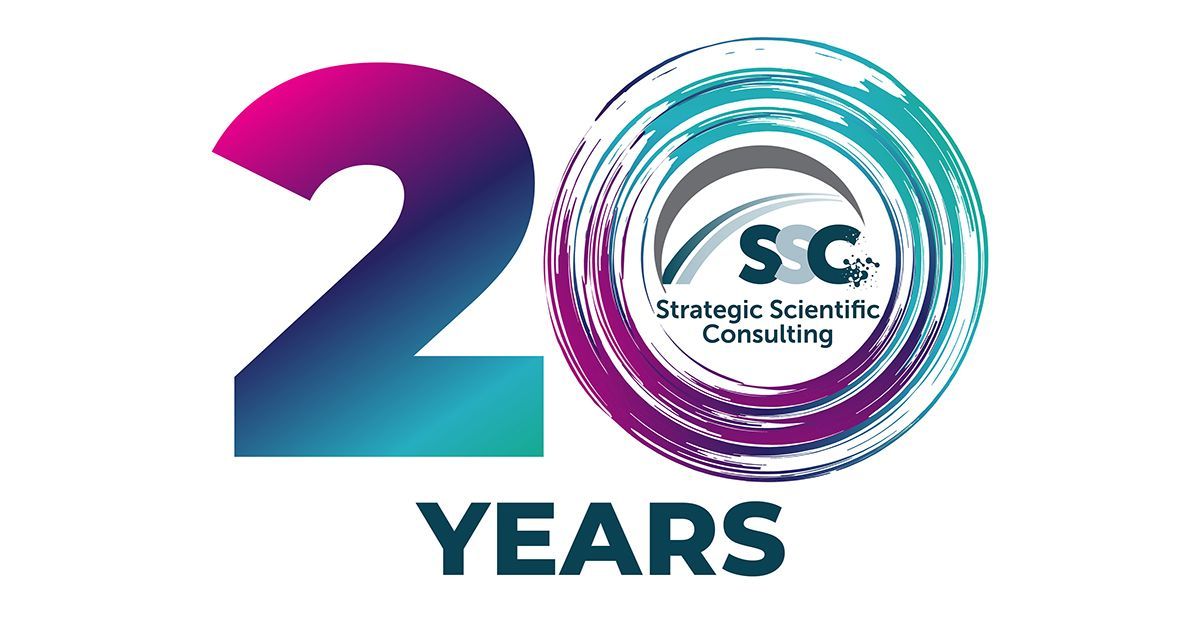News & Blog

Strategic Scientific Consulting Finland Oy – 10 vuoden matka Aika rientää nopeasti, kun saa tehdä innostavaa työtä mielenkiintoisten ja haastavien asiakasprojektien parissa. Olin haaveillut jo pitkään yrittäjyydestä ja melkein jo ryhdyn yrittäjäksi vuonna 2010. Innoituksena oli erittäin hyvä ystäväni Cait, johon olin tutustunut yli 20 vuotta aikaisemmin työn merkeissä ja hän oli jo ryhtynyt yrittäjäksi. Vuonna 2010 en vielä kuitenkaan uskaltanut hypätä yrittäjäksi, mutta vuonna 2015 olin valmis toteuttamaan haaveeni ja perustin yritykseni, joka aloitti toimintansa 1.11.2015. Päätöstä helpotti, että Caitin kanssa suunnittelimme, että tarjoamme yritystemme palveluja yhden luukun (SSC) kautta, jolloin asiakas saa helposti laajasti eri asiantuntija palveluja omiin tarpeisiinsa. Näin ei myöskään tarvinnut olla vain oman osaamisen ja resurssin varassa. Asiakkaita meillä on ollut eri toimialoilta, kuten lääke- ja diagnostiikka teollisuus, energiateollisuus, IT, kiertotalous ja hyvinvointi, sekä eri organisaatioista niin start-up ja pk-yrityksestä ja kuin yliopistoista. Olemme auttaneet esimerkiksi markkinakartoituksissa, liiketoimintasuunnitelmien valmistelussa, rahoitushakemusten teossa, markkinoinnissa ja myynnissä, kansainvälistymisessä sekä pitchaus-, kaupallistamis- ja esiintymistaidonkoulutuksissa. Olemme Caitin kanssa hyvin samanhenkisiä eli meillä synkkaa hyvin ja tuemme toisiamme vaikeinakin hetkinä. Lomia olemme viettäneet yhdessä perheinemme niin Suomen Lapissa hiihtäen ja Järvi-Suomessa juhannusta kuin Glasgow’ssa ja Dundee’ssa tutustuen mielenkiintoisiin nähtävyyksiin. Ja matka jatkuu yhdessä. Strategic Scientific Consulting Finland Oy – A 10-year Journey Time flies fast, when one has inspiring work among interesting and challenging customer projects. I had dreamed a long time about entrepreneurship, and I almost founded a company already in 2010. My enthusiasm for entrepreneurship was my very good friend Cait, who was already an entrepreneur. In 2010 I did not yet have the courage to found the company, but in 2015 I was ready to make my dream come true and I founded Strategic Scientific Consulting Finland Oy, starting operations on 1.11.2015. The decision was easier, since we planned with Cait, that we will provide the services of our companies through one-stop service (SSC) allowing customers pick wider range of expert services that they need different purposes. Personally, it was also a relief, thus I did not need to rely only on my own expertise and resources. We have served customers from many different fields, such as pharma and diagnostic, energy, IT, circular economy and wellbeing as well as from different organisations as start-ups, SMEs and universities. We have helped, for instance with market assessments, business plans, funding applications, internationalization, as well as proving training on pitching, commercialisation and presentation skills. We are, with Cait very like-minded; great minds think alike, and we support each other also in hard times. We have spent vacations together with our families in Finland, at Lapland skiing and at Lake-Finland Mid-Summer time, and in Scotland at Glasgow and at Dundee exploring attractions. And the journey together continues …….

Market Research – A Personal Perspective We live in a time when businesses are surrounded by data. Dashboards flash, reports pile up, and metrics seem to multiply by the day. But even with all that information at our fingertips, I often find myself asking the same question with clients: What does it all really mean? Because turning numbers and raw data into something useful, something that actually informs decisions, takes more than analysis. It takes understanding, curiosity, and a willingness to look beneath the surface. And a personal touch. That’s why I’ve always believed that the best market research isn’t just about gathering information. It’s about making sense of it, connecting data to context, and insight to strategy. Over the years, I’ve come to see market research as much about people as it is about information. The real value comes from understanding behaviour: how people think, what influences them, and why they make the choices they do. I try to approach every project the way a great scientist might approach an experiment: with curiosity, structure and also the experience to challenge assumptions. Also, the challenge isn’t collecting data; it’s making sense of it. Most organisations already have plenty of numbers. What they need is a way to connect those numbers to meaningful business decisions. That’s where experience really matters. As both a business manager & consultant, I’ve spent years helping organisations bridge that gap, translating findings into insight, and insight into strategy. For me, research should always lead somewhere: to a sharper decision, a better product, or a clearer sense of direction. A key tool of good research is good interviewing. I’m a people-person with a knack for good conversation. If there’s one thing I’ve learned, it’s that great research interviewing starts with good conversation and great questions. The questions that make you stop and think. For example: “What’s changing in your market that no one’s paying attention to yet?” “How do your customers describe value?” “Given a magic wand, what would you change for the better in your market?” As a consultative interviewer for many years, I know that questions like these open the door to discovery. And that’s what keeps me passionate about this work. At Strategic Scientific Consulting, we focus on turning complexity into clarity - not by chasing the latest tool or trend, but by asking the right questions and taking the time to understand the answers. I’m a firm believer that when you truly understand your customers, your competitors and your context, every decision becomes a little smarter and every opportunity, a little clearer. Andrew King SSC Consultant

This has been a busy year for SSC. · 8 new clients · 2 start-ups taken from idea to pitching – they are waiting for funding at this time. · 100% success rate on grant funding applications · Doubled the size of the SSC team We have been working with several universities in Scotland, rest of UK and in Finland on a variety of market research and scoping projects across Biotech, Robotics, AI and Education support. We have been involved in 9 projects for start-ups coming from the wider entrepreneurial landscape, ranging from individuals through to established companies considering their own spin-outs. Two of them, PolyMara and ElderThrive are now awaiting funding to be able to move forward to operations and employing staff. This is a record for us, and it feels like a milestone accomplishment! The individuals have come with excellent ideas where they needed help getting business plans for funding and help putting their team together, and it has been wonderful to see the benefits of our wider reach from our expanded team helping to locate skills and resource for them. Helping fully formed companies divest ideas into new business units or spin-outs has been a new area for us, it is a different set of challenges from working with universities towards the same outcome, but no less interesting. We have had the opportunity to work with community development companies seeking ambitious outcomes and focussing on re-population of their areas and creation of quality jobs. Cait has again been involved with EU project grant assessments and we have been grant writing too, helping to plan the strategy of which grant funds to apply for as well contributing to the narrative and the editing. One of the other areas where SSC excels is being able to offer additional resource for activities such as sales , useful when a company is wanting to step into a new territory but can’t yet justify the recruitment of an employee of their own. This year we were able to work with a Finnish company WellO2 as they explored the UK market and Cait was on-hand at the Glasgow Vegan Fest assisting Naked Kimchi as they showcased their produce. Our prizes of strategy sessions for Scottish EDGE winning companies have also helped companies think about how to be efficient and effective with their time. Back in Feb we put up a blog about setting challenges and giving yourself and your company targets that are outside the pure economic zone so we’re thinking it is timely to review our own progress in that area. We have found working with community projects very interesting and therapeutic. The visit to Barra was particularly inspiring seeing how a small population can pull together and plan for the future. The expansion of the SSC team has been a large milestone, the feeling that we have achieved critical mass, assembled a team that covers all aspects of putting a business together for a range of technical areas has been useful but also a confidence boost allowing us to dream bigger for ourselves as well as our clients. Cait has been involved with Scottish EDGE as a panel judge and Ansku has continued with her role mentoring companies with NOME . Keeping active in the entrepreneurial community in Nordic and UK helps to get us out of the office and interacting with new sectors and innovations. And we have also managed to achieve our ambition of being able to take a proper summer break, stopping all business activity for a month and making sure that we all got a chance to relax, recharge and spend time in nature and with friends and family. Looking ahead to 2025 SSC feels a more busy, confident place with a really good team able to help and it feels like we are strongly aligned with our mission and ethos to help business ideas emerge and grow within a collaborative, collegiate, and supportive approach.

You’ll be aware that SSC have a great team of skilled teaching professionals who have grown their knowledge from long careers working in industry. We have practical business experience and love to share that knowledge with others. Of course we’re very proud of what we do but it’s even better when you hear it directly from your own customers. Niina Karvinen is a project manager for the Erasmus+-funded Blueprint project called the European Social Innovation Campus, ESIC, at the Diaconia University of Applied Sciences in Finland, at their Centre for Social Entrepreneurship and Social Innovations. After working with SSC on several occasions, Niina was happy to share her thoughts: “While working at Oulu University, I had the opportunity to provide Strategic Scientific Consulting courses to my PhD students and university researchers and participate myself. In the Presentation Skills and Productization of Your Own Expertise Training courses, the contents were carefully planned, identifying the needs of the individual participants and engaged students with tailored learning tasks in various ways during the courses. The participant feedback supports this finding and I was delighted with the outcomes. I still use what I learned in the classes in my everyday life, both in my work and as a PhD student! I highly recommend the customised training offered by Strategic Scientific Consulting for universities and business professionals. These training packages, together with highly talented coaches, can strengthen skills and help you make your voice and message heard”. Thanks Niina! For more information on SSC Skills for Business, Click on "Services: Courses" from this website menu







